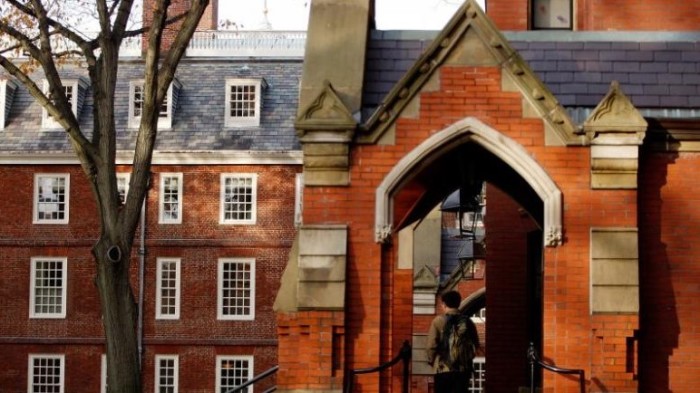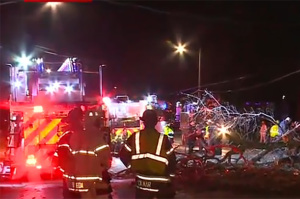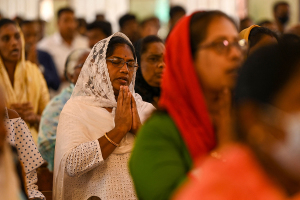Most top universities have inadequate due process protections as Title IX changes loom, report finds

A new report reveals that most of the top colleges and universities in the United States have inadequate protections for students accused of wrongdoing as proposed changes to the federal government's interpretation of a longstanding law raise concerns.
The nonpartisan Foundation for Individual Rights and Expression released its fifth annual report titled "Spotlight on Due Process" Tuesday, examining the procedures in place to protect students accused of sexual assault and violating other policies at colleges and universities in the U.S.
The report examined the disciplinary policies of the 53 top American colleges and universities as ranked by U.S. News & World Report in 2017. It found that 44 out of 53 schools studied received a grade of "F" or "D" for at least one of its disciplinary policies based on the presence of safeguards for students facing allegations of wrongdoing.
FIRE awarded grades to schools based on its penal policies, analyzing 155 policies among the 53 institutions.
Ryan Ansloan, FIRE's senior program officer who crafted the report, warned that "students accused of misconduct have little recourse on many campuses, facing kangaroo courts instead of fair hearings that respect their fundamental rights."
"Most rated colleges have three separate systems of disciplinary policies: one for sexual misconduct that takes place within the college's educational program and is therefore covered by Title IX; one for sexual misconduct that the college believes it can punish but which did not take place in a context within its control (for example, between a student and a non-student while home on summer break); and one for all other non-academic offenses, such as theft, alcohol violations, property destruction, and so forth," the report explained.
The report analyzed whether institutions have policies in place establishing a "clearly stated presumption of innocence, including a statement that a person's silence shall not be held against them," a "right to impartial fact-finders, including the right to challenge fact-finders for constitutional interests," a "right to present all evidence directly to the fact-finders," "the meaningful right of the accused to appeal a finding of responsibility" and "a requirement that factual findings leading to expulsion be agreed upon by a unanimous panel."
Additional safeguards that led to schools receiving higher grades in the report included the provision of detailed written notice of allegations and "adequate time to prepare for a reasonably prompt disciplinary hearing."
FIRE also awarded schools points if they allowed the accused to cross-examine witnesses testifying against them and permitted an "advisor of choice," such as an attorney, to speak on behalf of the accused.
Only one university, the Ivy League's Cornell University in Ithaca, New York, received an overall grade of "A" for any of its policies.
In this case, the disciplinary procedures pertaining to "all other non-academic offenses" received 18 out of 20 possible points. On the other hand, the Catholic University of Notre Dame, based in South Bend, Indiana, received the lowest score out of all the schools studied for the same set of disciplinary policies, receiving just 1 out of 20 possible points.
Schools with "non-academic" disciplinary policies awarded a grade of "F" by FIRE included Catholic institutions of Boston College and Villanova University and two prominent Ivy League schools: Columbia University and Harvard University.
Notre Dame also received an "F" grade for its disciplinary policies related to non-Title IX sexual misconduct, as did Emory University, Georgetown University, the Massachusetts Institute of Technology, Rice University, Tufts University and the University of Chicago.
On the other hand, all the institutions included in the report received a grade of "D" or higher for their disciplinary policies for Title IX-related sexual misconduct. FIRE attributes the disparity in grades between the disciplinary policies to the changes to Title IX implemented in 2020 by the Trump administration that have come under fire during the Biden administration.
"Since the adoption of the current Title IX regulations in 2020, the rated institutions have shown a consistent unwillingness to apply the procedural protections mandated for Title IX proceedings to contexts in which such protections are not legally required," the report noted.
FIRE warned that the changes to Title IX proposed by the Biden administration in June "threaten to reverse modest gains in procedural fairness," suggesting that schools could have lower scores for these types of disciplinary procedures if the new regulations are implemented.
In a statement, the advocacy group warned that the Biden administration's proposed changes to Title IX regulations could "torpedo improvements" designed to protect the rights of American students accused of sexual assault.
In a previous statement issued in June, FIRE warned that the administration's proposed changes would threaten the rights of students by "eliminating students' right to a live hearing; eliminating the right to cross-examination; weakening students' right to active legal representation; [and] allowing a single campus bureaucrat to serve as judge and jury."
Additionally, the group contends that the proposed Title IX changes reject "the Supreme Court's definition of sexual harassment in favor of a definition that threatens free speech rights" and require "colleges and universities to use the weak 'preponderance of the evidence' standard to determine guilt, unless they use a higher standard for other alleged misconduct."
The U.S. Department of Education insists that the proposed Title IX changes would "restore crucial protections for students who are victims of sexual harassment, assault, and sex-based discrimination — a critical safety net for survivors that was weakened under previous regulations."
Title IX was initially created in 1972 to provide equal opportunities to women and girls in education. Educational institutions that fail to comply with the demands of the law risk losing federal funding.
FIRE argues that if the administration's proposed Title IX regulations become law, the "shaky system" revealed in the 2022 report would "seem like the 'good old days.'"
Ryan Foley is a reporter for The Christian Post. He can be reached at: ryan.foley@christianpost.com





























